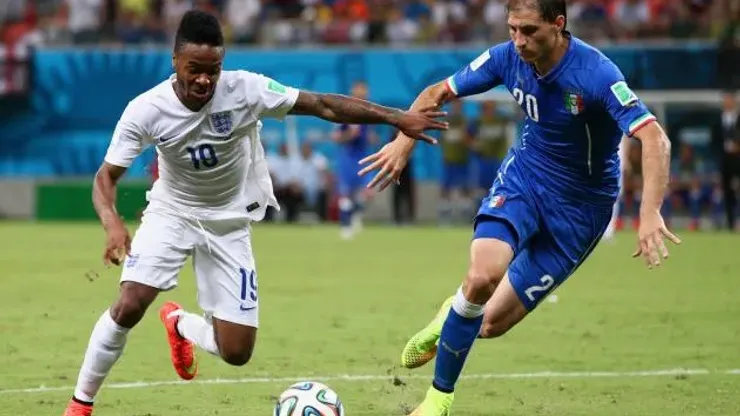Being an England fan at the latter stages of World Cup finals is akin to staring in through the window of a party you weren’t invited to. You can see all the fun being had by everybody there, and you can see all the talent on display and it makes you wonder “What is it that they have, that we don’t?”
With regards to England, it is a question that has been asked time and time again following multiple failures at major international tournaments. Enquiries are always held, the spotlight is always shone in many different directions and the same old questions are churned out over and over in the hope of one day finding a solution to the perennial problem. Who is to blame? How do we change things? Who has to go? Who can stay? Is the Premier League to blame?
Somewhat peculiarly, despite England crashing out so early at the World Cup this summer, I genuinely believe that there were far more positives to come out of it than at some of the previous tournaments in which England have managed to somehow drag themselves through to quarter-finals.
The two games that England lost were incredibly close, and could have gone either way. Unlike in South Africa four years earlier, when England were utterly outclassed against Germany, or two years later when they were subjected to a footballing master class by Andrea Pirlo but somehow managed to cling on for penalties, there was no gulf in class this time around. In fact, against both Italy and Uruguay, England were the better side for long periods of the game. That is a moot point now I know, as England lost two games and finished bottom of the group, but there were positives to be drawn.
Firstly, Roy Hodgson had boldly gone with the younger players who had just completed such good seasons for their club sides. Nobody in their right minds would have said at the start of the 2013-14 Premier League season that Raheem Sterling, Jordan Henderson and Daniel Sturridge would have started for England in Manaus.
In years gone by, England managers have been guilty of picking players on reputation rather than form, which is why the same old players were always seemingly selected. Hodgson deserves a lot of credit for shaking things up a little.
The early interchange between the forward players, particularly Sterling, Sturridge and Danny Welbeck was at times beautiful to behold. They ran out of steam in the end, but the way they played was something we hadn’t seen in an England shirt for many a year, and it was a welcome breath of fresh air. England were actually playing football that was pleasing on the eye, and there were enough signs at least to see that there is much promise in that particular department. Again, Hodgson has to take credit for that.
Ironically, England’s main failings this summer were in an area where they normally excel: defense. But for a short spell in the second half against Uruguay, Leighton Baines didn’t quite translate his club form onto the international arena. Glen Johnson always comes across as a player who is selected mainly due to the fact that are no other options in his particular position right now. Gary Cahill and Phil Jagielka are very capable central defenders, but neither of them are anywhere near the calibre of Rio Ferdinand, nor John Terry, who in my opinion remains England’s best centre-back, despite being in the twilight of his career. Joe Hart is a world class goalkeeper, but looked as though he had little faith in the players in front of him.
Steven Gerrard and Jordan Henderson are not defensive midfielders. Nor are they the sort of players who can consistently split defences open with incisive passing, control the tempo of a game or take a game by the scruff of the neck. If England are to persist with the new formation that Hodgson seems to favour, they will have to unearth a specialist defensive midfielder for starters, as well as a playmaker. Jack Wilshere may be able to fill one of those roles, but he is currently far too injury prone and inconsistent to be too effective at this level.
All in all though, despite the early exit and the usual harbingers of doom, there are reasons to be optimistic for England.
200+ Channels With Sports & News
- Starting price: $33/mo. for fubo Latino Package
- Watch Premier League, Women’s World Cup, Euro 2024 & Gold Cup
The New Home of MLS
- Price: $14.99/mo. for MLS Season Pass
- Watch every MLS game including playoffs & Leagues Cup
Many Sports & ESPN Originals
- Price: $10.99/mo. (or get ESPN+, Hulu & Disney+ for $14.99/mo.)
- Features Bundesliga, LaLiga, Championship, & FA Cup
2,000+ soccer games per year
- Price: $5.99/mo
- Features Champions League, Serie A, Europa League & Brasileirāo
175 Premier League Games & PL TV
- Starting price: $5.99/mo. for Peacock Premium
- Watch 175 exclusive EPL games per season






